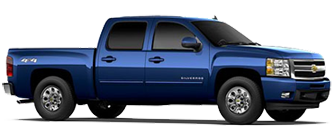Trailer Tires
When you need tires for your trailer, you want heavy-duty, special trailer tires. 16.5 tires and 19.5 tires are two of the more commons sizes, but we stock special trailer tires in all sizes for use as camper, motorcycle, utility, or boat trailer tires.
Special trailer tires are made heavy-duty to accommodate higher inflation pressures, and have stiffer sidewalls to help control sway. Their enhanced towing stability and increased bruise resistance sets them apart from car tires or truck tires.
Auto tires are not meant to withstand the rigors of carrying a trailer, and special trailer tires are not meant for use on cars or light trucks.
How to Buy New Trailer Tires
Trailer tires take a lot of abuse, and often carry heavy loads. They wear fairly quickly, especially in hot weather. The average life span of a trailer tire is three to five years, and even if they appear to have plenty of tread left, it's best to replace them at three to four years old, and certainly by five years they must be replaced.
When you go to buy new ones, bring the dimensions of the current tires with you, so you can match the existing ones.(You'll find the dimensions on the sidewall of the tire.) Trailer tires are marked with either ST (Special Trailer) or LT (Light Truck), indicating they are specifically constructed to handle trailers and their heavy loads. Tires must meet or exceed the gross vehicle weight of the axle, and when loaded, the combined weight of the tires should exceed the trailer weight by 20%.
It's always a good idea to ask about the warranty on the trailer tires you are considering. Find at least two brands of tires that will fit the trailer and handle the load. Compare the brands, and ask our tire specialists for any information you feel you need, and be sure to call us for Maxxis trailer tires. We'll help you find the best tires within your budget.
Bring your trailer into the shop, and we'll install the tires for you.
In fact, if you're buying RV tires 22.5, RV tires 19.5, or any other size RV tires, have us professionally mount and balance them, as most RV tires are not balanced from the factory--which can lead to tire failure if not properly balanced.



